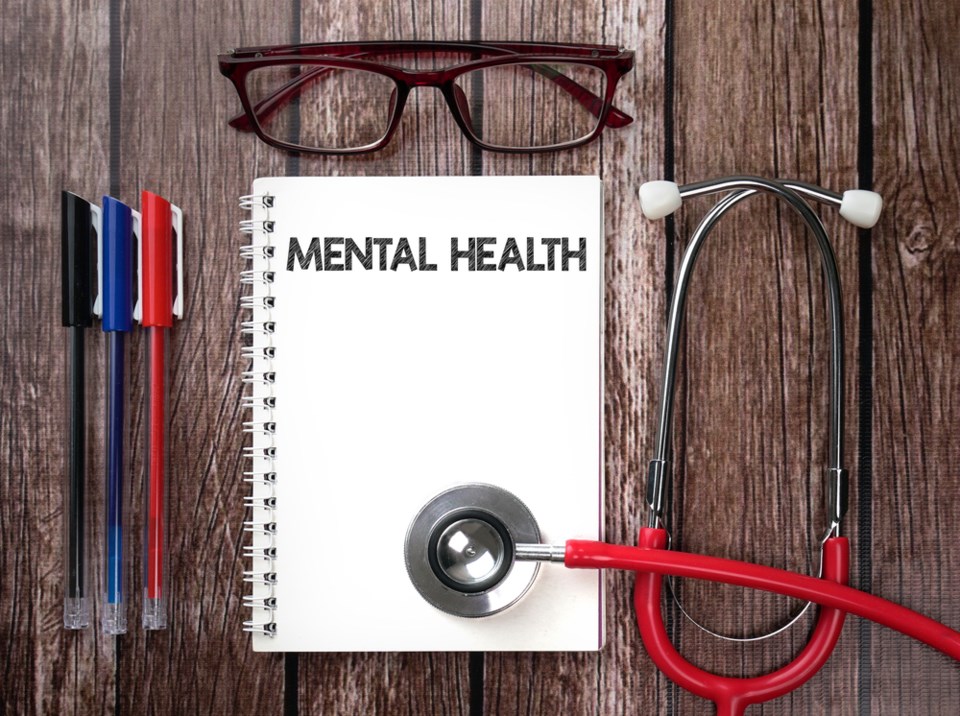For many, the period after the holidays can be a difficult time for mental health, and The Canadian Mental Health Association is hoping to offer some advice to help people handle their post-holiday blues this year.
For many people, January often sees a dip in people’s mental health as they struggle with the aftermath of the holidays, afflictions like Seasonal Affective Disorder and, this year, the effects of pandemic-related anxiety and stresses.
With cancelled holiday traditions and more isolation than ever this year, the CMHA is expecting that more people are experiencing increased feelings of depression, anxiety and loneliness, said vocational coordinator Desiree Thul from the Moose Jaw branch.
A recent CMHA survey showed that more than 40 per cent of Canadians felt their mental health has already deteriorated this year due to COVID-19, while annual data shows that an estimated 2 to 10 per cent of Canadians are affected by SAD each year.
With such an increase in mental health concerns this year, the Moose Jaw Express reached out to the local CMHA to share some coping advice for anyone who may be struggling.
The first step is to keep an eye on your mental health, said Thul. Knowing the symptoms of depression, anxiety and elevated stress is important, and keeping tabs on how you feel can leave you better prepared to engage in coping strategies or, if necessary, to seek outside help and support.
It also helps to understand the difference between SAD and major depression, as SAD is a seasonal affliction that shares many symptoms with other types of depression. Often the first treatment suggested for SAD symptoms is to increase light exposure, using tools like a SAD lightbox or even a tanning bed.
It's also important to assess where the sudden feelings of stress or anxiety may be coming from, like whether symptoms are being caused by work or a social issue, to help address them with future changes. Some stresses can even come from outside factors like finances, so the CMHA recommends dealing with problems as soon as they come up to avoid snowballing.
There are many strategies to help address low periods as part of your daily routine, said Thul. For some, improving their state of mind can be as simple as engaging in mood-boosting activities — practicing favourite hobbies like reading or baking, making social plans to look forward to, or just reaching out to family and friends for a friendly chat over the phone.
It can also be beneficial to engage in new activities or do something to alter perspective, like volunteering. Music and laughter can also be mood-boosting, and meditation can help alleviate stress.
Of course, a person’s mental health can also be impacted by more regular parts of the daily routine. The CMHA says that it's important to get the right amount of sleep, not too much or too little, and get at least 10 minutes of exercise per day to release mood-improving endorphins.
Eating a healthy diet can also make a difference, as fruits and vegetables provide Vitamin B to help produce serotonin and foods containing Omega-3 fatty acids can help with symptoms of depression.
For many people, engaging with some of these tactics may be enough to help improve their mental well-being, but Thul emphasized that for days when they don't, the next step is to reach out for help.
In addressing mental health concerns, the number one piece of advice from the CMHA is to seek help when mental health symptoms begin to feel overwhelming. That could mean seeking therapy or counselling, or just sharing with peers or family.
“The biggest thing is reaching out and talking to someone. Sometimes people just need to talk, and they’re not necessarily looking for feedback or anything, but just that connection,” said Thul. “But it’s so important to open up to someone, whether it's family or a friend or an organization in the community.”
The CMHA offers plenty of resources for people to utilize, including the Emergency Wellness Response phone line for individuals feeling affected by the pandemic, peer support groups and a free self-help program called BounceBack.
Thul also shared more available resources in the area, like the University of Regina's Online Therapy Unit — which provides free mental health therapy online from local professionals — the new Seniors Centre Without Walls phone program, and support programs provided by the health authority.
That the CMHA has seen more people reaching out for resources since the pandemic began, said Thul, and she encourages residents to continue to do so when they feel the need. The pandemic has certainly put a spotlight on the importance of taking care of mental health, but having the conversation is just one piece of the puzzle.
“We’re all experiencing the effects [of the pandemic] and for some of us, it's so much harder,” said Thul. “And I think more people are becoming more open-minded about mental health [but] now more than ever, it’s so important to be kind to people and be patient and understanding and open-minded.”
More information about symptoms, resources and available supports can be found at moosejaw.cmha.ca or on the national website at cmha.ca.
The local CMHA branch can also be contacted by phone at 1 (306) 692-4240 for more information about any of the supports and resources they offer, or for direction to other resources within the province of Saskatchewan to help address mental health concerns.




